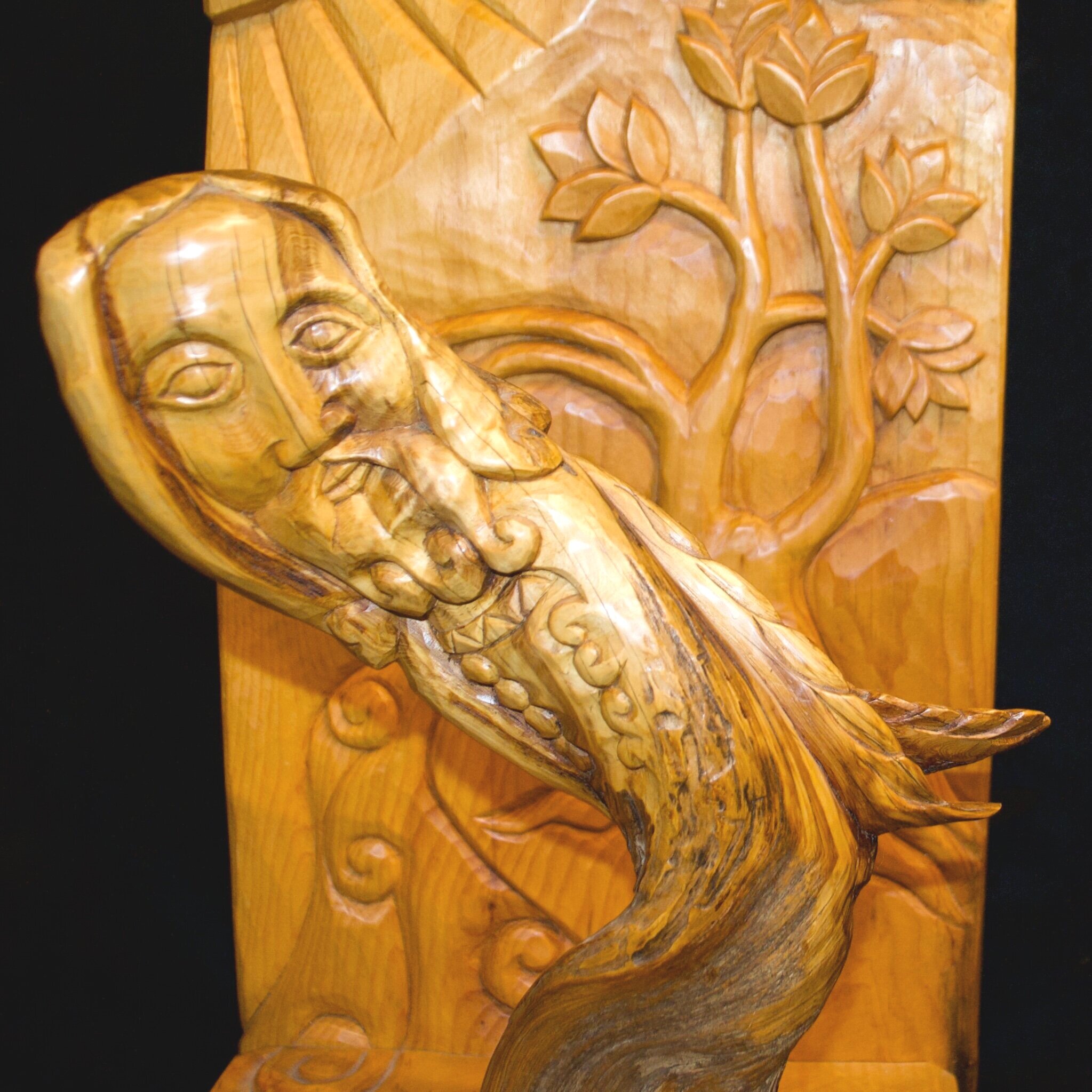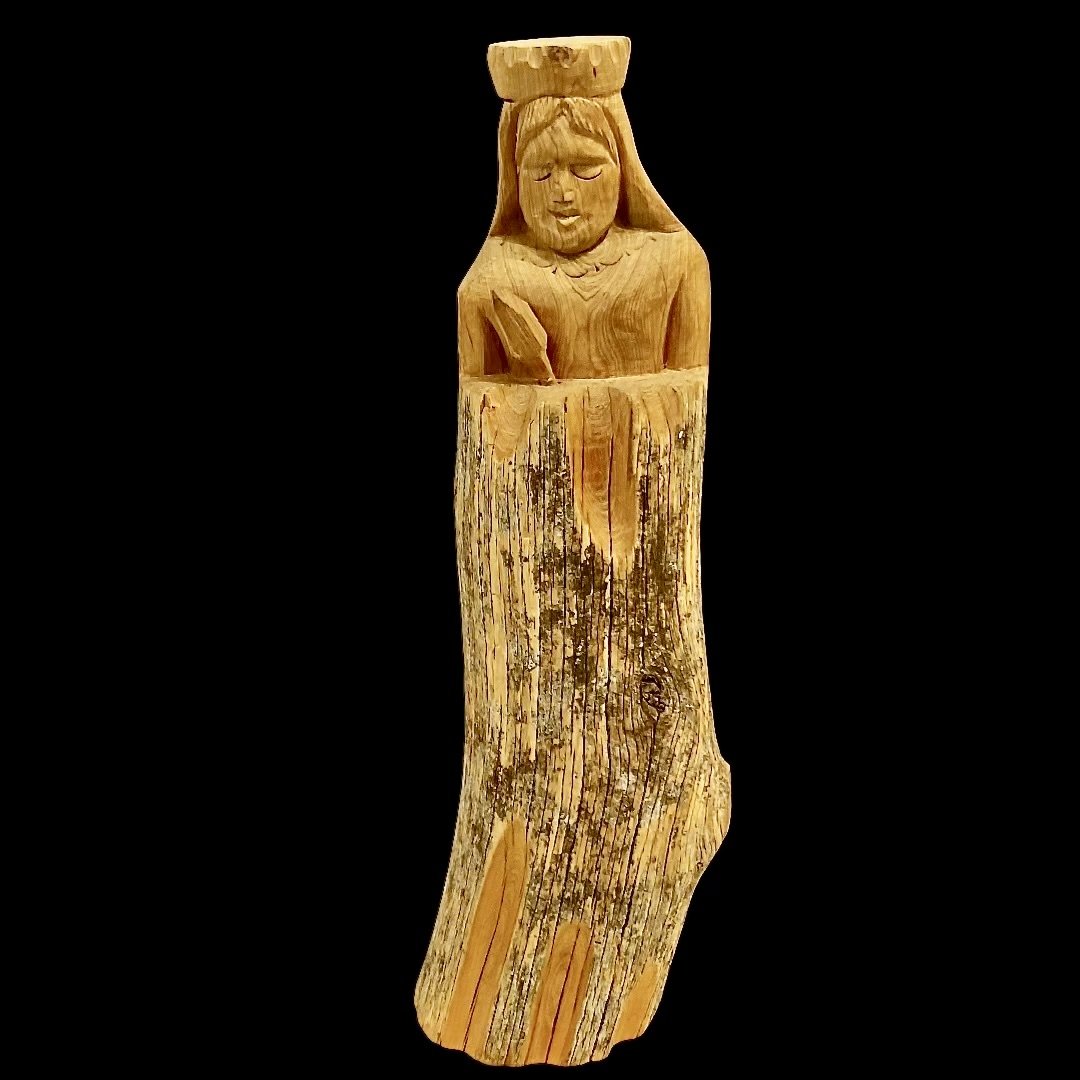- Sculpture
- Cedar Wood St Michael Bulto by Daniel Barela
Cedar Wood St Michael Bulto by Daniel Barela

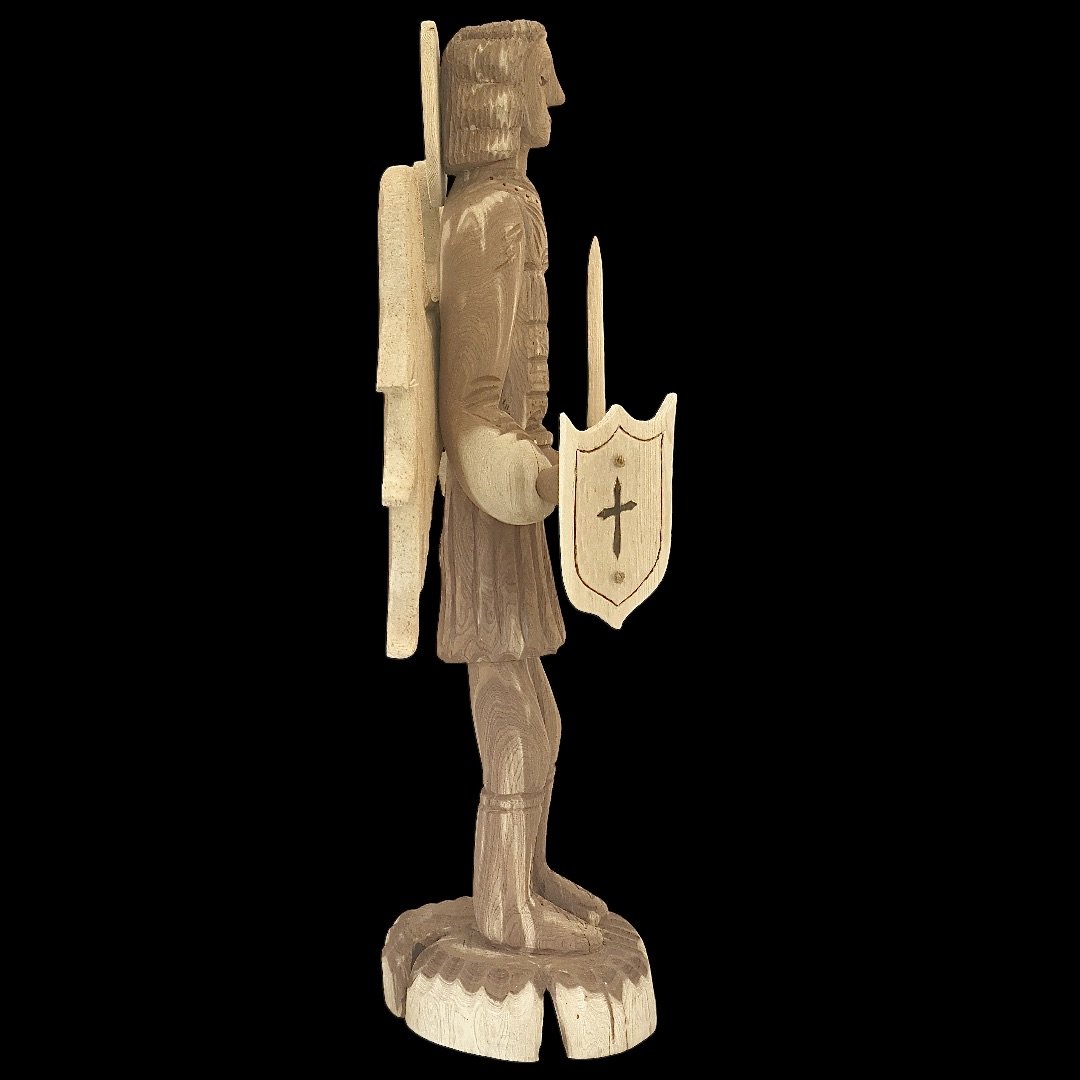

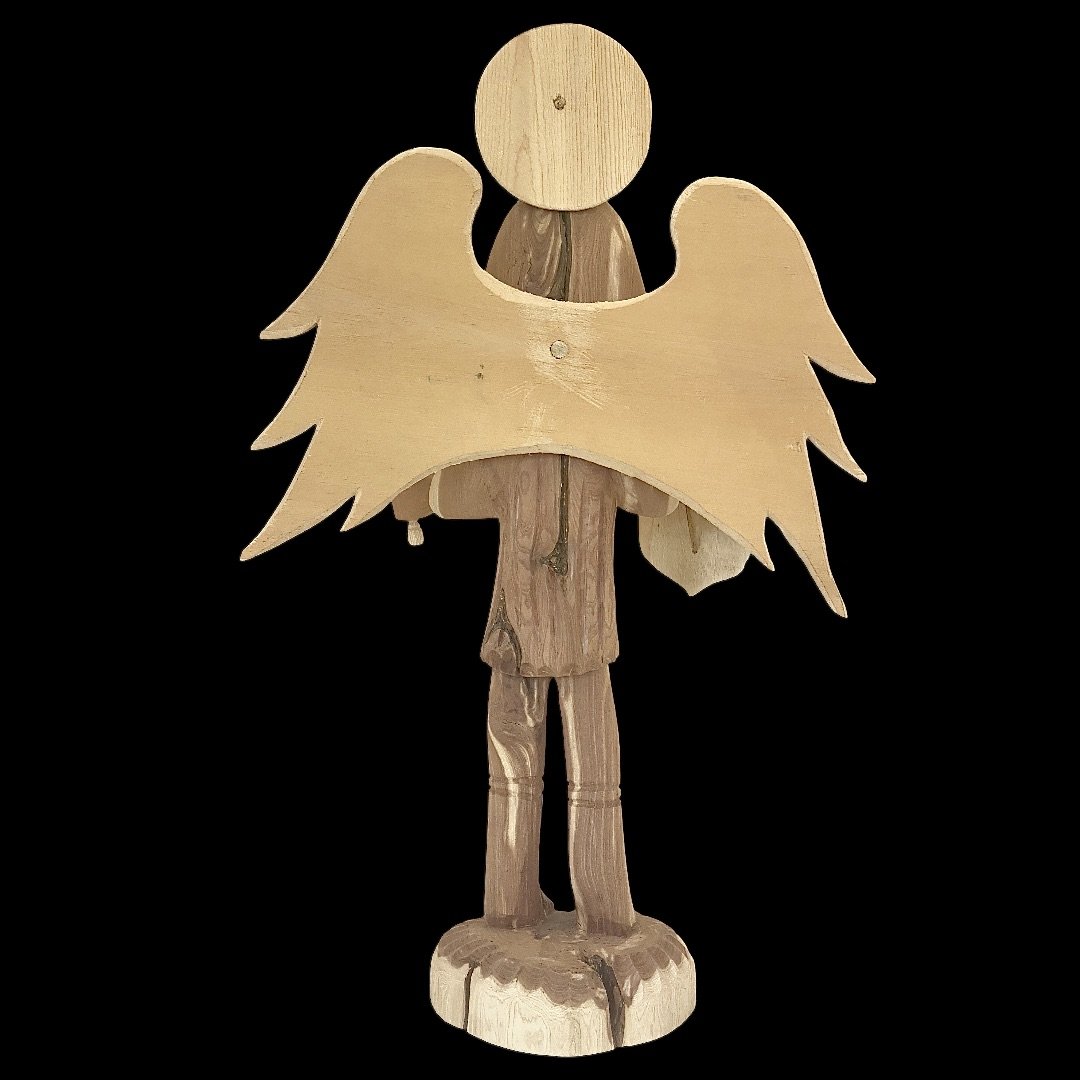
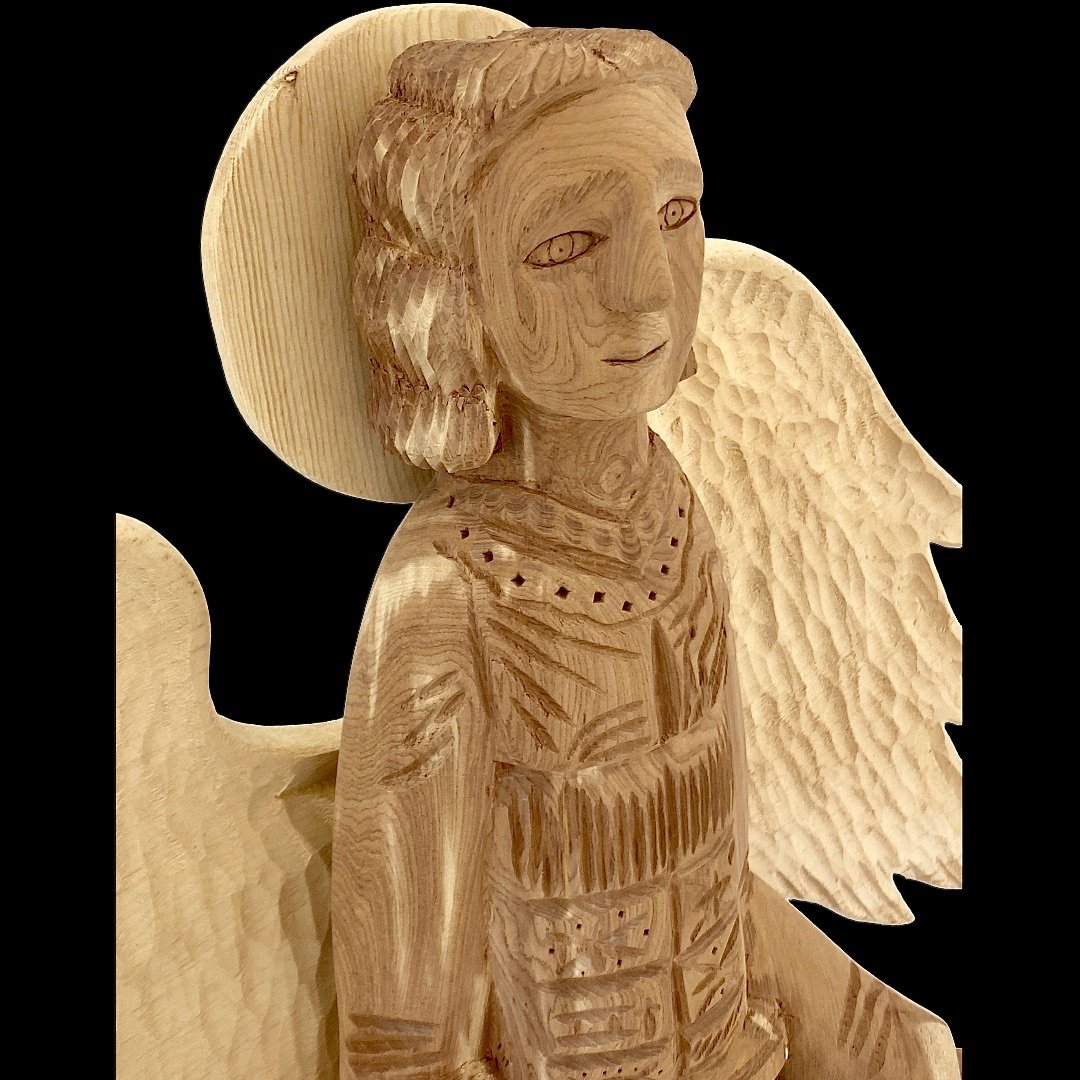
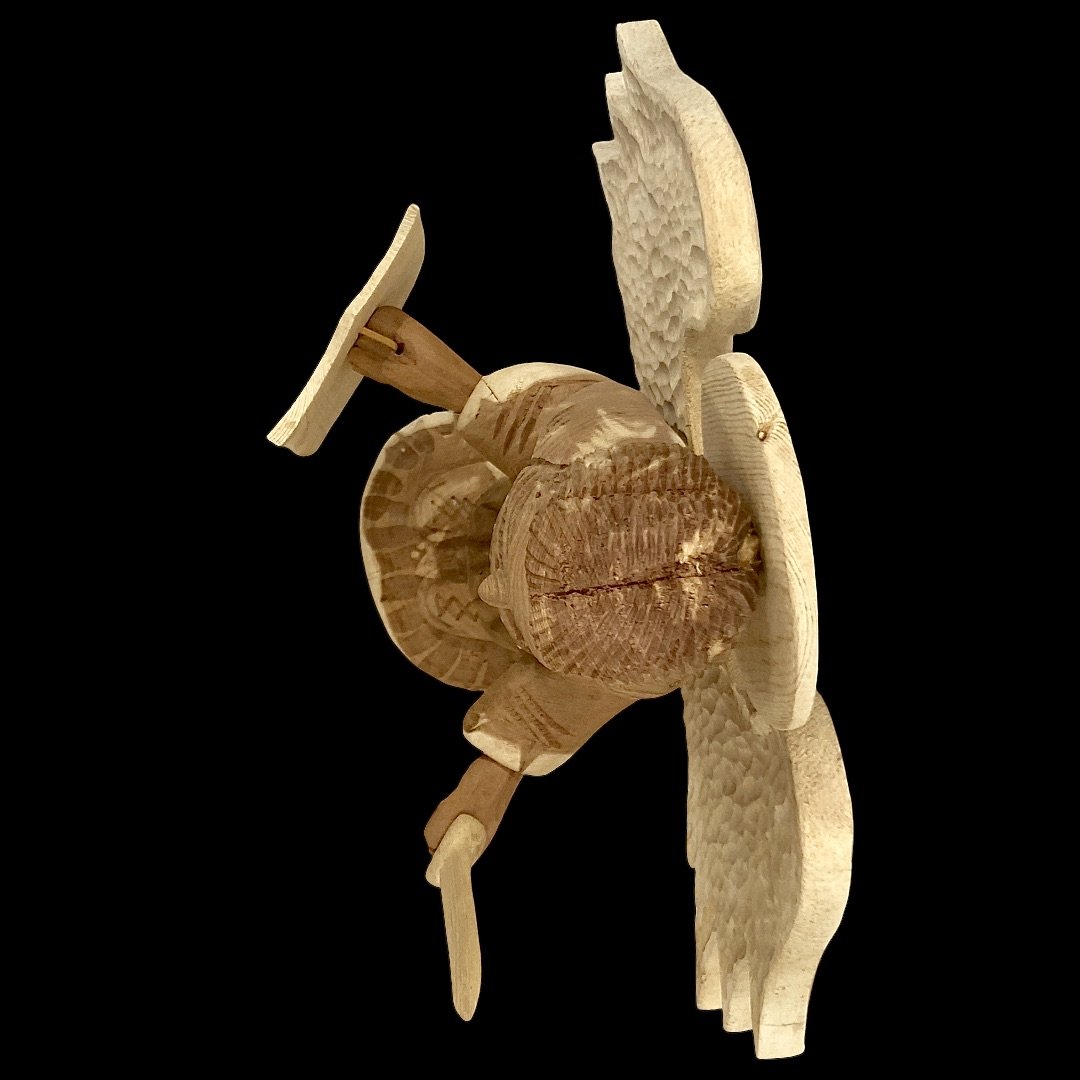
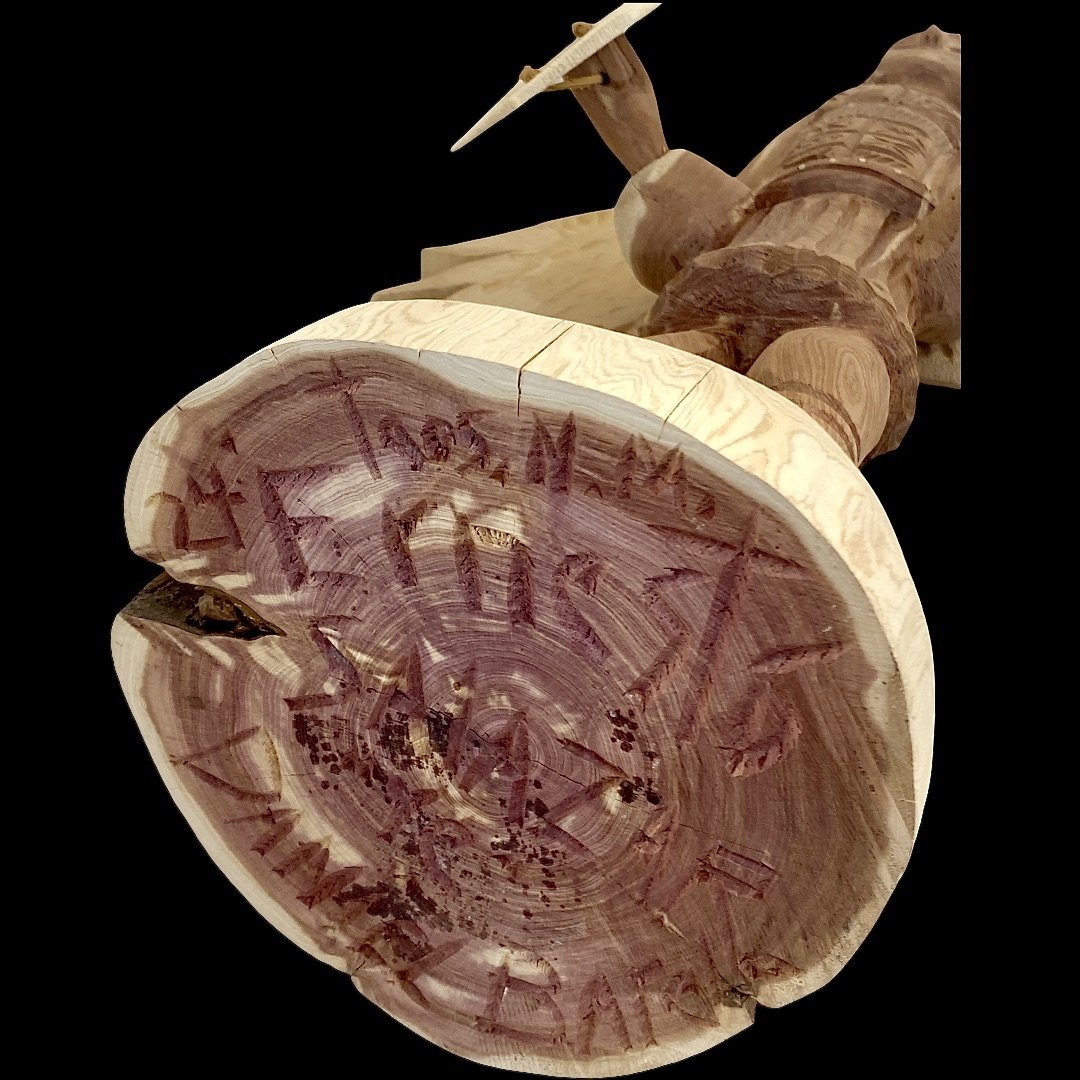
Cedar Wood St Michael Bulto by Daniel Barela
Hand-carved cedar wood St Michael Bulto by Daniel Barela of Taos, New Mexico.
Approx: 26" x 16" x 7 1/2" at base.
**Shipping is not included. Call us 575-758-9407 to arrange.
Hand-carved cedar wood St Michael Bulto by Daniel Barela of Taos, New Mexico.
Approx: 26" x 16" x 7 1/2" at base.
**Shipping is not included. Call us 575-758-9407 to arrange.
Daniel Barela
Daniel Barela, who has been carving from at least the age of 12, is the son of well-known Taos woodcarver, Luis Barela and the great-grandson of the famous New Mexico woodcarver, the late Patrocinio Barela. Daniel Carries on the family tradition of using hand tools to create beautiful sculptures from cedar wood ( the colloquial name for the local juniper species).
Even as a teenager Daniel was an award winning woodcarver who won numerous prestigious awards from the Spanish Colonial Arts Societies Traditional Spanish Market in Santa Fe, NM.
Steeped in a deep history of artistic excellence, Daniel continues win accolades for is work, and to live and work in Taos. He now has a son of his own who carves.
I carve to keep the family tradition going. - —-Daniel Barela
The Art of the Santero
In Northern New Mexico, the folk art of the Santero originated during the mid to late 1700s. Folk art blossomed out of a necessity — people who arrived from long and arduous journeys lacked decorations or ornaments for their homes and churches. The art flourished until the 1860s when French priests, new to the area, found this folk art to be distasteful and primitive. The folk art form was barely visible by the turn of the 20th century. It was revived with the WPA programs in the 1930s and later through the efforts of the Spanish Colonial Arts Society, beginning in the 1950s. Support of the Santero art form continues today.
A Santero is a painter and carver of images. Pine panels split from logs were called retablos. The Santero evened out the front and back panel and sanded the front to provide a smooth painting surface. Baked gypsum rocks were finely crushed, then mixed with water and glue made from rabbit skins and animal hooves. This mixture was painted on the front of the pine panel and allowed to dry. After sanding, the Santero would either sketch or paint free-hand an image of a saint. He gathered clays to make yellow ochre and reds, traded with neighboring pueblos for the color of azure, purchased imported indigo for blues, sumac berries for bright reds and created blacks from lampblack and charcoal. Other colors were adaptations of vegetable dyes that local weavers used, plus dried cochineal bugs. Brushes were made from available sources — yucca fibers, animal hairs and chicken feathers. A bulto, or image carved in the round, began as a piece of root of the cottonwood tree, or sometimes pine. If the figure was large, the head, hands and feet were carved separately and attached later using dowels and animal glue. After the bulto was gessoed, it was painted in the same fashion as a retablo. (Note: in Northern New Mexico, the local term cedar, actually refers to a variety of juniper tree.)
As Santeros became more proficient, altar screens called reredos were commissioned. Fine examples of the Reredos can be found in Northern New Mexico churches at Chimayo, Santa Cruz, Cordova, Truchas, Trampas, Guadalupe de Taos and Rancho de Taos. In Santa Fe, you will find a Reredos at the San Miguel Church.


